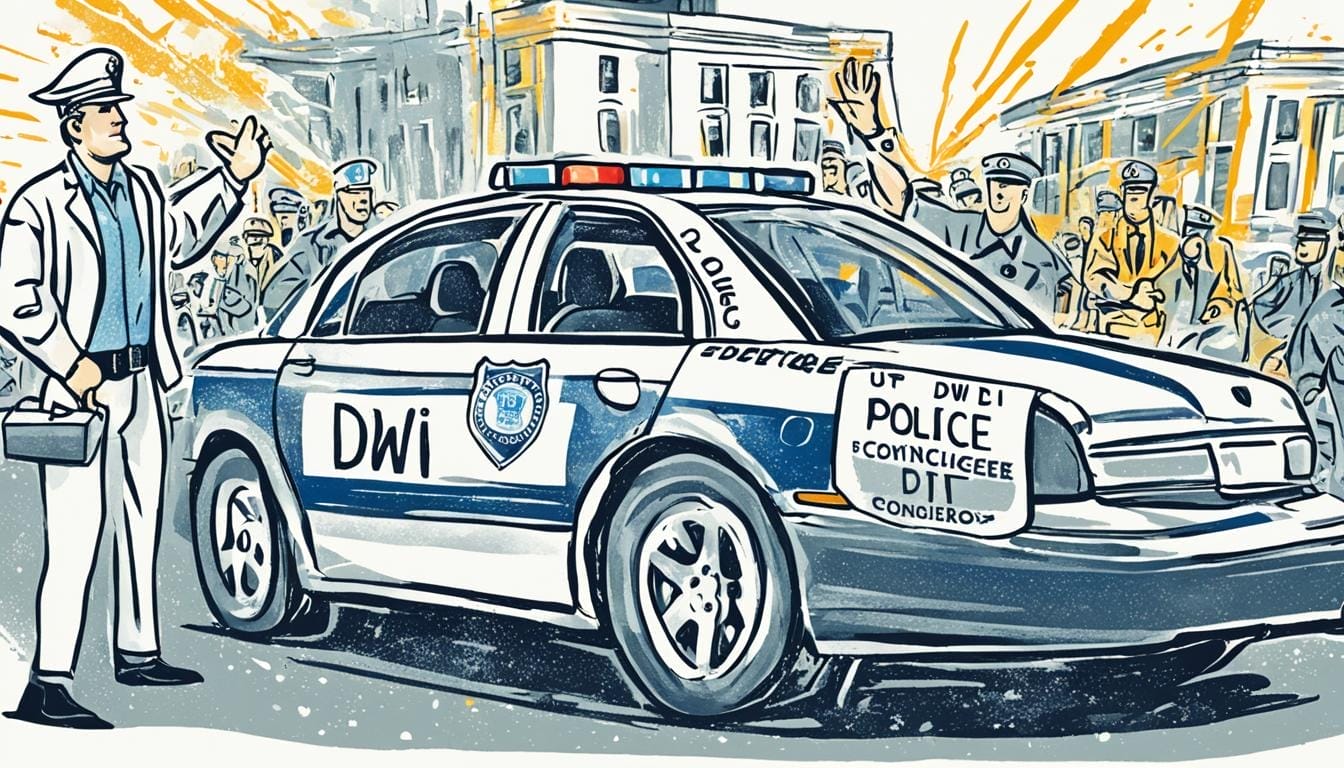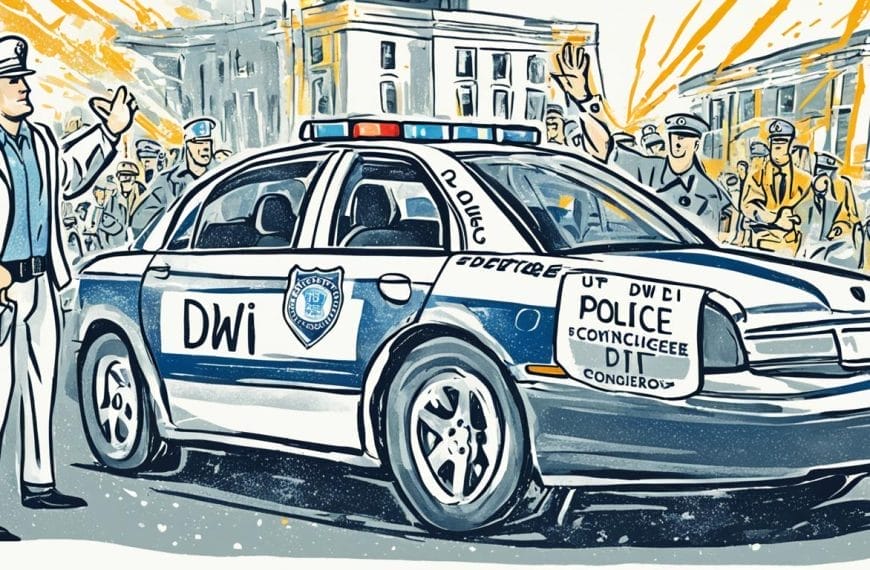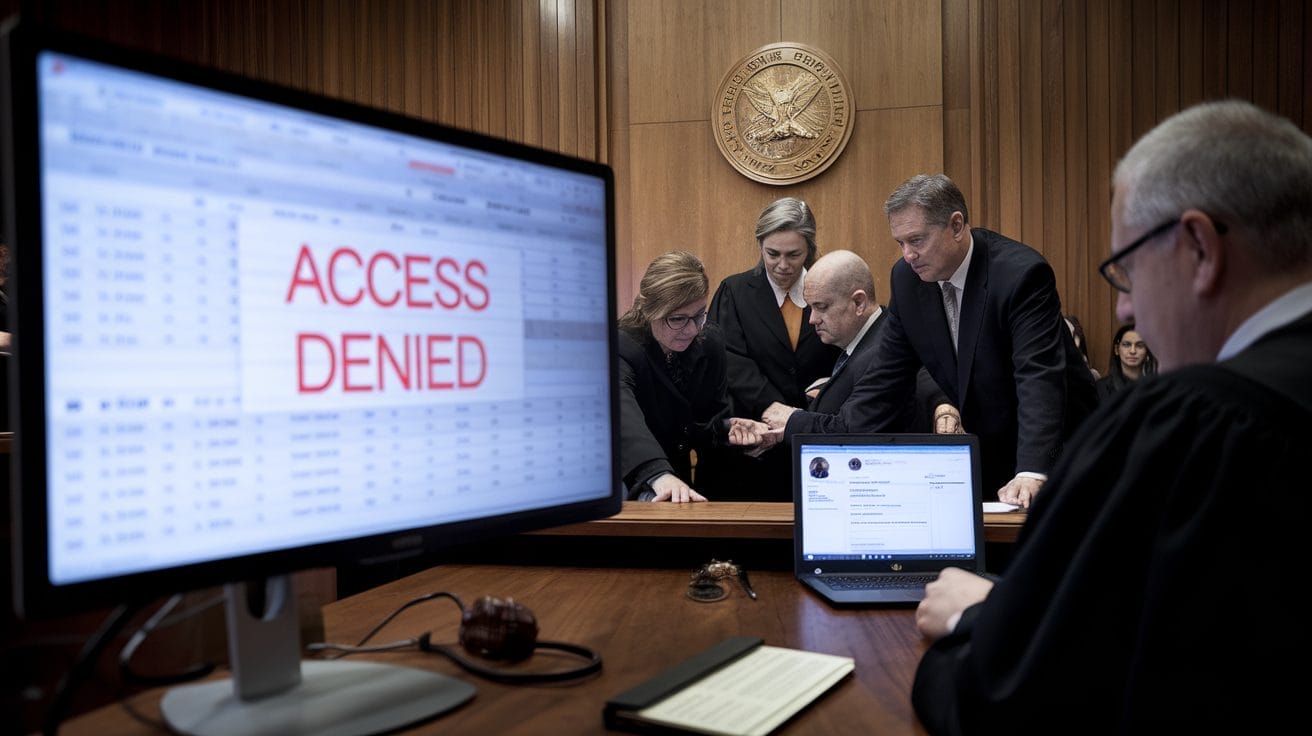Did you know that a DWI (Driving While Intoxicated) conviction can have a lasting impact on your driving record?
When it comes to DWI offenses, it’s vital to understand how long they stay on your record and the implications this can have on various aspects of your life. From employment opportunities to insurance rates, the duration of a DWI on your driving record carries significant weight. It’s crucial to be well-informed about state-specific regulations to ensure you have a clear understanding of the consequences you may face.
In this article, we will delve into the details of how long a DWI lasts on your driving record, explore the legal and insurance implications, and provide strategies to minimize its impact. So, buckle up and get ready to navigate the complexities of DWI record duration.
Introduction to DWI and Its Impact on Driving Records
This section will serve as an introduction to the concept of DWI (Driving While Intoxicated) and its impact on driving records. Understanding the implications of a DWI offense is crucial for individuals to comprehend the potential consequences that can arise from such a conviction.
A DWI offense refers to the act of operating a vehicle while under the influence of alcohol or drugs, impairing one’s ability to drive safely. The severity of a DWI offense may vary depending on factors such as blood alcohol concentration (BAC) level, prior convictions, and the regulations of the state in which the offense occurred.
Being convicted of a DWI can have significant and long-lasting effects on a person’s driving record. A driving record is a comprehensive report that details an individual’s history of traffic violations, accidents, and other driving-related incidents. Insurance companies, employers, and law enforcement agencies often rely on driving records to assess an individual’s driving behavior and risk potential.
A DWI conviction can result in various consequences that can negatively impact a driving record:
- License Suspension: A common consequence of a DWI conviction is the suspension or revocation of the individual’s driver’s license. This suspension period can range from a few months to several years, depending on the severity of the offense and any prior convictions.
- Increased Insurance Rates: Insurance companies often view DWI convictions as indicators of high-risk behavior, resulting in significant increases in insurance premiums. The impact on insurance rates can last for several years, leading to financial burdens for individuals.
- Criminal Record: A DWI conviction is typically classified as a criminal offense, resulting in the creation of a criminal record. This record can have far-reaching consequences, including potential limitations on employment opportunities and even affecting professional licenses in certain fields.
It is crucial for individuals to recognize the importance of maintaining a clean driving record and the potential long-term effects of a DWI conviction. By understanding the severe consequences associated with a DWI offense, individuals can make more informed decisions regarding their actions and take steps to prevent such occurrences.
State-Specific DWI Record Duration
This section provides specific information on the duration of a DWI on a driving record in various states. Understanding the duration of a DWI record is crucial for individuals to navigate the potential consequences and plan accordingly.
DWI Record Duration in Colorado
In Colorado, a DWI conviction remains on your driving record for a certain period of time. The duration varies based on the severity of the offense and the number of prior convictions. For a first-time DWI offense, the record typically stays on your driving history for 10 years. However, subsequent DWI convictions may result in longer record durations.
DWI Record Duration in Maryland
Similarly, in Maryland, the duration of a DWI record depends on the specific circumstances of the offense. For a first-time DWI conviction in Maryland, the record remains on your driving history for 5 years. Repeat offenses and aggravated DWI convictions may result in longer record durations.
DWI Record Duration in Other States
While specific information on DWI record duration is provided for Colorado and Maryland, it is important to note that the duration can vary significantly in other states. Each state has its own laws and guidelines regarding the retention of DWI convictions on driving records.
Generally, a DWI conviction can remain on a driving record for several years, ranging from 3 to 10 years, depending on the state and whether it is a first offense or a subsequent conviction. Some states, however, have more lenient policies and may remove DWI convictions from the driving record after a certain period of time.
It is crucial to consult the specific laws and regulations of your state to understand the duration of a DWI record accurately. Working with an experienced attorney familiar with DWI laws in your state can help you navigate the process and better understand the implications of a DWI conviction on your driving record.
Example of Typical Timeframes for DWI Record Duration:
| State | First-Time Offense | Subsequent Offense |
|---|---|---|
| California | 10 years | 10 years or longer |
| Texas | 10 years | Indefinite |
| Florida | 75 years | 75 years |
Legal Consequences of a DWI Conviction
This section will explore the legal consequences that individuals may face as a result of a DWI conviction. It is important to understand the potential immediate legal repercussions and the long-term legal implications of such convictions.
Immediate Legal Repercussions
When convicted of a DWI, individuals may experience several immediate legal repercussions:
- Fines: Convicted individuals may be required to pay substantial fines, depending on the severity of the offense and any prior convictions.
- License Suspension: A DWI conviction can result in the suspension or revocation of your driver’s license. The length of the suspension can vary depending on the jurisdiction and the individual’s prior offenses.
- Potential Jail Time: In some cases, a DWI conviction may lead to imprisonment, especially if it involves aggravating factors such as injury or death caused by the intoxicated driving.
Long-Term Legal Implications
A DWI conviction can have lasting legal implications, which may include:
- Restrictions on Driving Privileges: Following a DWI conviction, individuals may face extended periods of driving restrictions, such as mandatory use of an ignition interlock device or limited driving privileges for work or essential purposes only.
- Potential Employment Consequences: A DWI conviction can impact employment opportunities, especially for those in professions that require a clean driving record or involve driving as part of the job. It can also lead to difficulties in obtaining professional licenses or certifications.
- Lasting Impact on Criminal Record: A DWI conviction becomes a permanent part of a person’s criminal record, which can affect future background checks, housing applications, and other areas where a clean criminal record is required.
The Role of Expungement in DWI Cases
This section will focus on the concept of expungement and its role in DWI cases. Expungement refers to the legal process of removing or sealing a DWI conviction from a person’s driving record. Understanding expungement and its eligibility criteria is essential for individuals who wish to clear their record and mitigate the long-term consequences of a DWI conviction.
Expungement Eligibility and Process
To be eligible for expungement, individuals must meet specific criteria, which may vary by state. Common requirements for expungement of a DWI conviction include completing all terms of sentencing, probation, and rehabilitation programs, as well as maintaining a clean post-conviction record. It is crucial to consult with a legal professional who specializes in expungement cases to evaluate eligibility and navigate the complex process.
The expungement process typically involves filing a petition with the appropriate court, providing supporting documentation, and attending a hearing. The court will review the petitioner’s case and consider factors such as the severity of the offense, the individual’s criminal history, and their rehabilitation efforts. It is important to follow all procedural requirements and provide compelling evidence and arguments to increase the likelihood of a successful expungement.
Limitations of Expungement in DWI Cases
While expungement can offer individuals a second chance by removing a DWI conviction from their driving record, it is crucial to understand that expungement may have limitations and restrictions in DWI cases. Some states may not allow expungement of conviction records related to serious offenses such as felony DWIs or those involving injuries or fatalities.
Additionally, even if a DWI conviction is expunged from a person’s driving record, certain entities such as law enforcement agencies, the court system, and insurance companies may still have access to the expunged records, particularly for future legal proceedings or insurance purposes.
It is essential for individuals seeking expungement to thoroughly research and understand the specific laws and regulations in their state regarding expungement of DWI convictions. Consulting with a knowledgeable attorney can offer guidance and help navigate the complexities of expungement in DWI cases.
Impact of a DWI on Car Insurance Rates
This section will discuss the impact of a DWI conviction on car insurance rates. It will explain how insurance companies view DWI convictions as high-risk factors, leading to increased premiums for individuals with a DWI on their driving record. The section will also delve into the duration of insurance penalties following a DWI conviction and provide tips on finding affordable insurance options after a DWI.
Insurance Rate Increases Post-DWI
When it comes to car insurance rates, a DWI conviction can have a significant impact. Insurance companies typically consider DWIs as high-risk factors, indicating a greater likelihood of accidents or other driving violations. As a result, individuals with a DWI on their driving record can expect their insurance rates to increase.
The extent of the rate increase will vary depending on the insurance provider and the specific circumstances of the DWI conviction. However, it is not uncommon for insurance premiums to double or even triple for individuals with a DWI. This can have a substantial financial impact, making it crucial to understand the implications of a DWI on insurance rates.
Duration of Insurance Penalties
The duration of insurance penalties following a DWI conviction can also vary. In general, a DWI conviction will stay on a person’s driving record for several years, typically ranging from three to seven years. During this time, individuals may face higher insurance rates and may be required to carry SR-22 insurance, which is a special type of coverage for high-risk drivers.
It’s important to note that the duration of insurance penalties may also depend on state-specific regulations. Some states may have longer or shorter penalty periods, so it’s essential to be aware of the specific rules in your state.
Finding Insurance After a DWI
After a DWI conviction, finding affordable car insurance can be challenging. Many traditional insurance providers may be unwilling to offer coverage or may significantly increase premiums due to the high-risk nature of a DWI conviction. However, there are still options available.
One option is to seek out specialized insurance providers who cater to high-risk drivers. While these providers may offer coverage at higher rates, they are more likely to work with individuals who have a DWI on their record. Additionally, taking steps to improve your driving record and demonstrating responsible behavior can help in finding more affordable insurance options over time.
It’s important to compare quotes from multiple insurance providers to ensure you find the best rates and coverage for your specific situation. Working with an insurance agent who specializes in high-risk drivers can also be beneficial in navigating the process and finding the most suitable insurance options.
Strategies for Minimizing the Impact of a DWI
When it comes to the impact of a DWI on your driving record, there are strategies you can take to minimize the long-term consequences. One of the first steps is to seek legal defense and explore the possibility of plea bargains. By working with an experienced attorney, you may be able to reduce the severity of your DWI conviction, which can have a positive effect on your driving record.
Another strategy to consider is participating in rehabilitation programs and defensive driving courses. These programs not only demonstrate your commitment to safe driving but can also provide valuable knowledge and skills to help prevent future incidents. Completing these programs shows responsibility and may have a positive influence on how the DWI is perceived by employers and insurance companies.
Furthermore, maintaining a clean post-DWI record is crucial. This involves strictly adhering to all traffic laws and regulations, avoiding any further legal issues, and demonstrating responsible behavior on the road. It’s important to understand that even minor infractions can have a negative impact on your record, so it’s essential to remain vigilant and focused on maintaining a clean driving history.
Minimizing the impact of a DWI on your driving record requires a proactive approach. It’s crucial to seek legal defense, consider rehabilitation programs, and consistently maintain a clean post-DWI record. By doing so, you can work towards minimizing the long-term consequences that a DWI can have on your personal and professional life.













